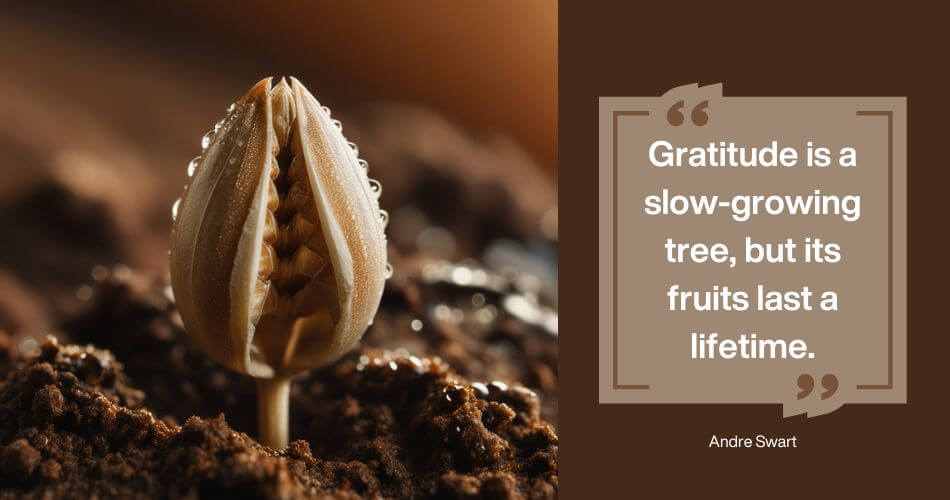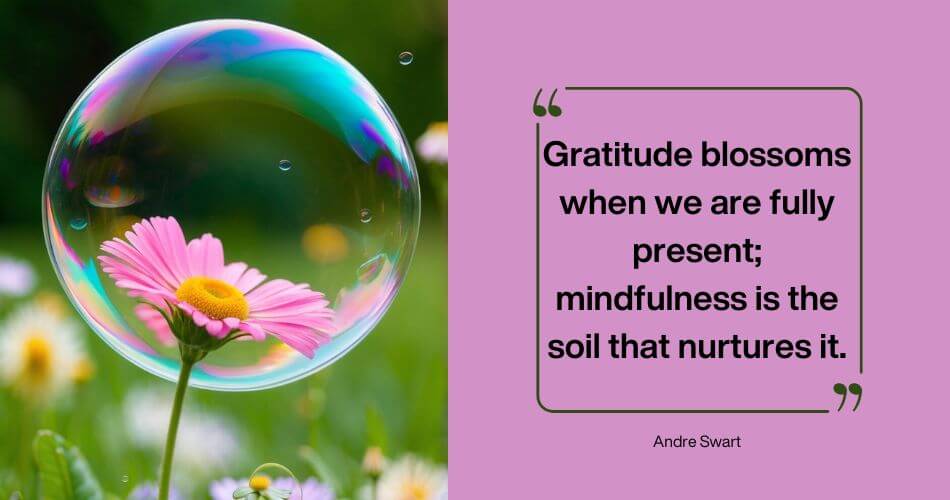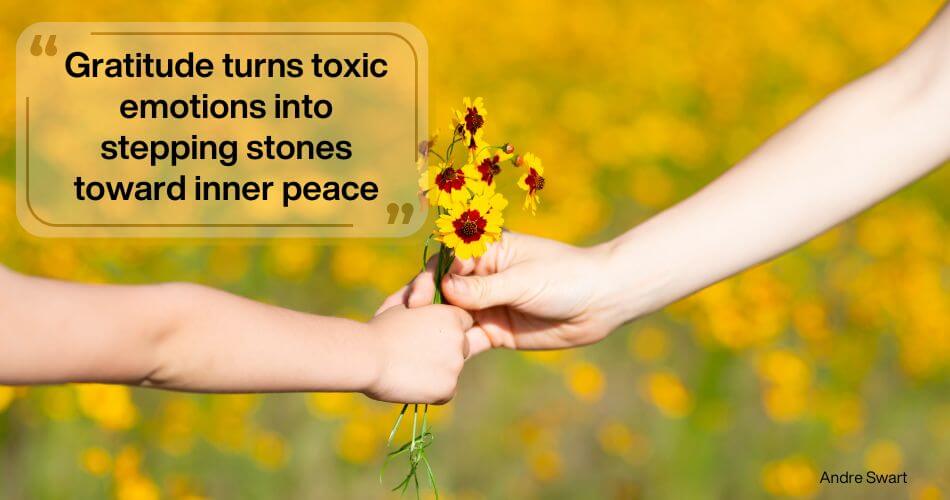How Gratitude Transforms Emotional and Psychological Well-Being
Discover the deeper impact of gratitude and how it unlocks emotional and psychological well-being.

The Life-Changing Impact of Gratitude
Have you ever wondered how gratitude influences your emotional and psychological well-being? Let me share a relatable story.
Picture two people who face the same obstacles—whether it’s a failed business venture, an exhausting day at school, or a collapsed property deal.
One gives in to frustration, while the other reflects on the support they received and the lessons learned. What sets them apart? Gratitude.
Andre Swart, a property expert and motivational speaker, often emphasizes: “Without gratitude, nothing really matters, and without it, there is no hope.”
But how do you harness gratitude in a way that creates lasting emotional and psychological benefits? In this article, we’ll dive deeper into how gratitude can bring meaningful change and explore mindful strategies for making it a sustainable part of your life.
How Gratitude Creates Emotional and Psychological Stability

Gratitude offers more than fleeting happiness—it creates a framework for emotional and psychological well-being. However, for gratitude to have a lasting impact, it must involve mindful engagement and intentional exploration.
The Role of Mindful Engagement in Gratitude Practices
Surface-Level Gratitude vs. Deeper Exploration
Gratitude becomes truly transformative when it moves beyond automatic responses, such as saying “thank you,” to involve intentional reflection.
Mindful engagement means taking the time to consider the underlying value of experiences, relationships, and challenges.
Cultivating a Mindful Gratitude Practice
To make gratitude sustainable, it’s essential to slow down and reflect regularly. This practice allows you to notice even small blessings—like a meaningful conversation or a simple act of kindness—that might otherwise go unnoticed.
How Gratitude Cultivates Hope and Motivation
Acknowledging what we are grateful for not only makes us feel good but also strengthens our ability to pursue meaningful goals.
To amplify these effects, gratitude can be combined with actionable affirmations—affirmations that are not just words but are supported by actions.
Pairing Affirmations with Actions for Lasting Impact
Affirmations Backed by Action
It’s not enough to repeat affirmations like “I am grateful for my opportunities” if your actions don’t align with that statement.
Pair your affirmations with actions—such as networking, learning new skills, or taking bold steps—to ensure that gratitude translates into meaningful progress.
The Power of Small, Consistent Actions
Meaningful change occurs through consistent effort. Small actions aligned with gratitude-based affirmations can generate motivation, encouraging you to keep moving forward, even in tough times.
How Mindfulness Enhances Gratitude and Psychological Well-Being

Mindfulness is the practice of staying present in the moment, helping us fully engage with experiences and emotions.
The key to achieving mental clarity—and by extension, emotional well-being—is making mindfulness a continuous practice, not one limited to occasional guided sessions.
Mindfulness as an Ongoing Practice
Integrating Mindfulness into Daily Life
Practicing mindfulness doesn’t have to be confined to formal meditation. It can involve everyday activities, such as mindful walking, eating, or simply breathing.
By integrating mindfulness throughout your day, you can become more attuned to moments of gratitude.
Mental Clarity Through Continuous Awareness
When mindfulness becomes a regular practice, it promotes mental clarity. This clarity allows you to observe your thoughts without judgment, fostering emotional stability and reinforcing gratitude even in challenging situations.
The Neurochemical and Psychological Benefits of Gratitude
Gratitude triggers beneficial changes in the brain that foster emotional stability and well-being. These effects—enhanced by mindfulness and actionable affirmations—can transform how we experience life.
Neurochemical Changes That Support Well-Being
Dopamine and Serotonin Boosts: Gratitude increases dopamine and serotonin levels, promoting feelings of happiness and relaxation.
Reduced Stress Hormones: Shifting your focus to gratitude reduces the production of stress hormones like cortisol, helping you manage anxiety and pressure effectively.
Gratitude Strengthens Social Connections and Resilience
Gratitude also deepens relationships by encouraging appreciation and kindness, which creates a support network essential for emotional well-being. In times of hardship, these connections serve as a foundation for resilience.
Gratitude and the Pursuit of Inner Peace

Spike Milligan once said, “Money can’t buy you happiness, but it does bring a more pleasant form of misery.” His humor captures an essential truth: true happiness is found in non-material aspects of life.
Gratitude shifts our focus away from financial pursuits and reminds us to cherish relationships, experiences, and personal growth.
Entrepreneurs often discover that financial success offers only temporary satisfaction. It is the recognition of life’s intangible treasures—such as meaningful conversations, personal development, and cherished moments with loved ones—that brings lasting contentment.
In the pursuit of success, gratitude ensures we don’t lose sight of what matters most.
Embrace the Transformative Power of Gratitude
Living with gratitude means going beyond a simple list of daily appreciations—it’s about engaging with life on a deeper level.
It demands intentional awareness, aligning your actions with positive affirmations, and nurturing consistent reflection. This commitment helps cultivate inner joy, build resilience, and achieve mental clarity.
Gratitude is not just a fleeting moment of appreciation—it is a compass that guides us through life’s complexities.
When embraced fully, it reveals purpose, fosters hope, and allows us to experience fulfillment, even amidst challenges.
